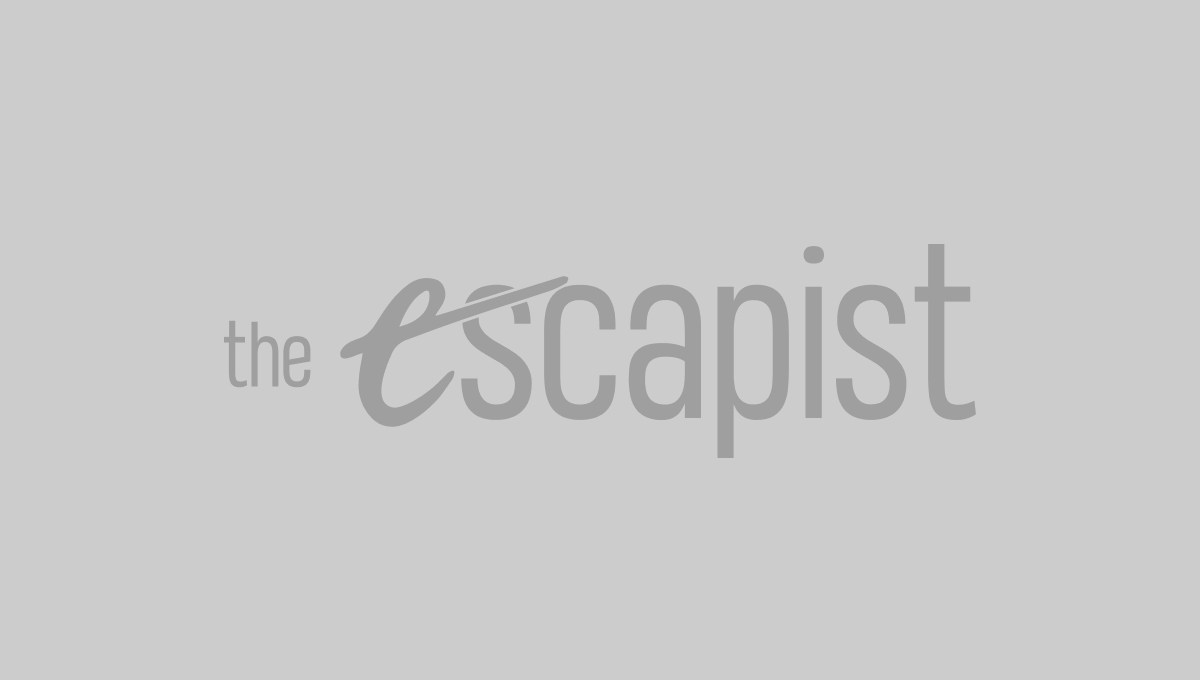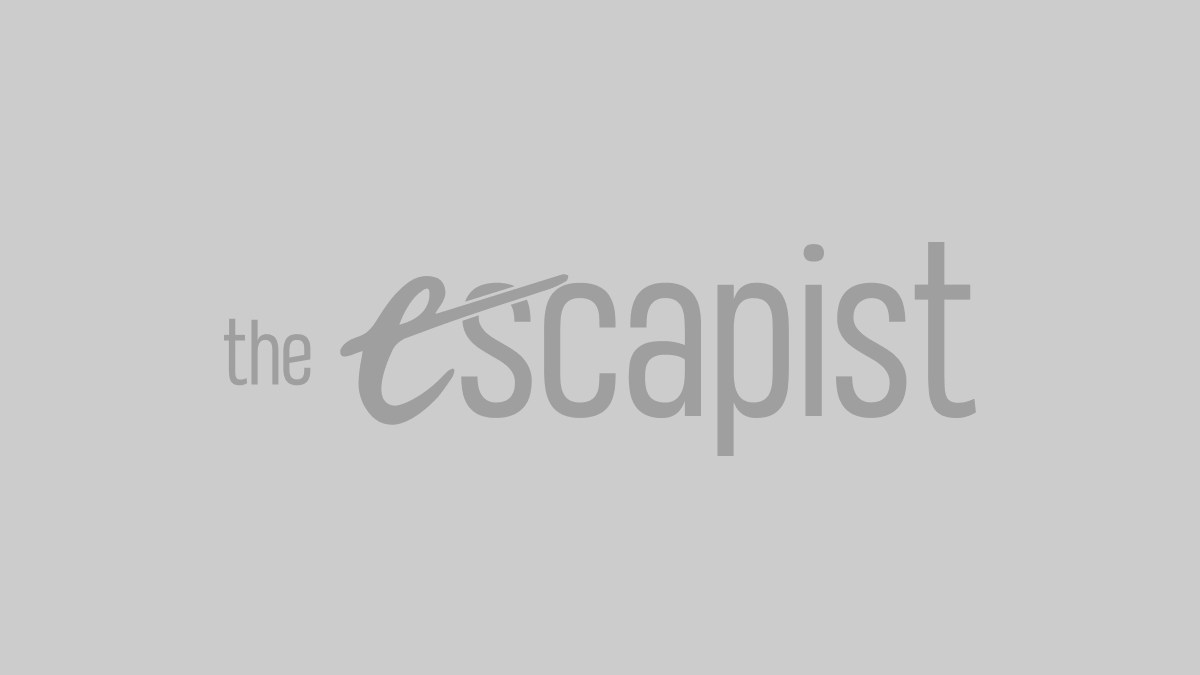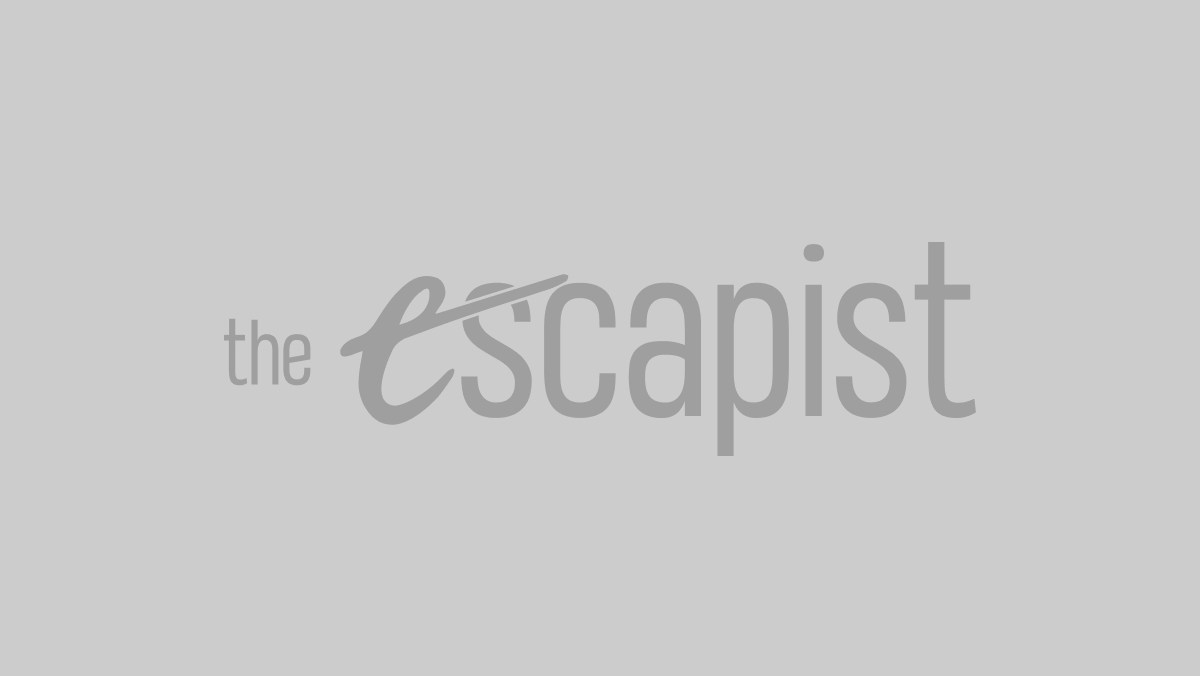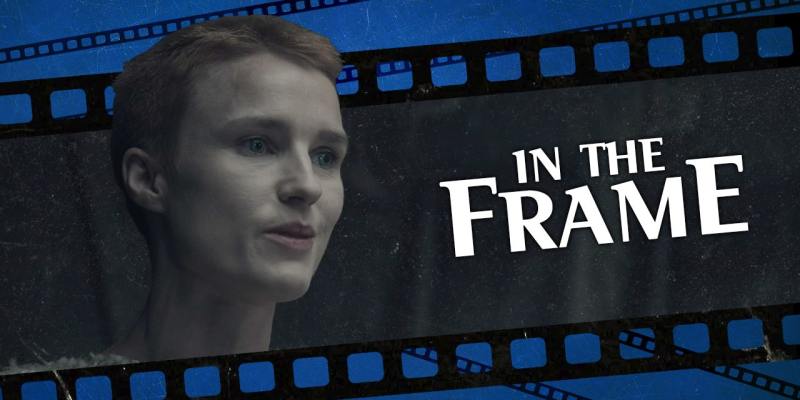Raised by Wolves is the first tentpole drama for HBO Max, something of a proving ground for the young streaming service’s ability to attract an audience with big-budget content not based around existing intellectual property.
Raised by Wolves is not directly based on existing source material with an established fandom. Its cast primarily comprises international performers like Amanda Collin from Denmark, Abubakar Salim from Britain, Niamh Algar from Ireland, and Travis Fimmel from Australia. Although the cast is strong, none of these performers are household names. As such, the show is an interesting gamble when streaming services are banking on audience recognition and familiarity.
If Raised by Wolves has a potential hook for audiences, it is the involvement of Ridley Scott. The trailer certainly leans heavily on Scott’s name. Scott is credited as an executive producer on the show, and the series was produced through his company, Scott Free Productions. Ridley Scott also directed the first two episodes, with his son Luke directing the following two. More than that, the show feels like a Ridley Scott production. It shares a texture with the director’s most iconic work.
This is evident from the show’s opening minutes, as a spaceship glides to the surface of the barren exoplanet Kepler-22b. Scott’s framing of the shots evokes the landing scenes from Prometheus, as the craft flies low through rocky valleys. When the craft comes to a stop, the character known only as Father (Salim) emerges from the craft. His deliberate movement, his uncanny cheeriness, and his superhuman strength establish him as an android, in the mold of Michael Fassbender’s David.
The androids bleed white, as they do in the Alien franchise. A detached android head placed on a shelf recalls the fate of Ash (Ian Holm) in Alien. The barren landscape is stalked by tiny monsters that recall the proto-xenomorphs scurrying through the grass in Alien: Covenant. The emphasis on survival on a hostile alien world even evokes The Martian. Even the series’s repeated allusions to the Roman Empire (with the god Mithra and the title) seem to echo Gladiator.
Scott makes no effort to disguise his creative sensibility. More than the actors or the concept, Scott knows that he is the star here. Indeed, the show’s themes and narrative fit comfortably within Scott’s oeuvre. Raised by Wolves follows Mother (Collin) and Father, two android refugees from a human war who have been assigned to raise a group of human children on a distant planet. The war was fought between believers and atheists. The atheists lost. These children are all that survive.
As such, Raised by Wolves is built around concepts that have interested Scott. The series plays out the reproductive anxieties that shaped Prometheus and Covenant — and bubbled through Blade Runner 2049, which Scott originally intended to direct but on which he eventually served as executive producer. There are the religious themes that informed Prometheus and Exodus: Gods and Kings.
Despite the attention paid to Ridley Scott in the publicity material, Raised by Wolves was created by Aaron Guzikowski, who also wrote the first four episodes. The series is perhaps best understood as a point of intersection between Guzikowski’s core themes and Scott’s key interests. As such, it becomes particularly interesting in its exploration of parenthood and the sense of anxiety and uncertainty that comes with being responsible for protecting an innocent life.

Guzikowski is probably best known for writing the screenplay for Prisoners, which hovered on Hollywood’s “black list” for several years before director Denis Villeneuve brought it to the screen. Prisoners is a film about two families shocked by the abduction of their young children, with Keller Dover (Hugh Jackman) particularly haunted by his failure to protect his daughter Anna (Erin Gerasimovich). This failure drives Keller towards violence and brutality.
Ridley is best known for his work on science fiction built around artificial lifeforms — the androids in the Alien franchise and the replicants in Blade Runner. These concepts provide an interesting avenue to explore questions of personhood and identity. However, Scott’s recent work with androids on Prometheus and Covenant (and as a producer on Blade Runner 2049) has tied them to questions about procreation and progeneration.
Prometheus is a story about the relationship between flawed creators and failed creations: the Engineers and humanity, David and Peter Weyland (Guy Pearce). In Covenant, David’s thwarted attempts to create something are as much a source of reproductive horror as anything in Alien. Even Exodus: Gods and Kings captures the horror of the final plague, as the firstborn children of Egypt are struck down before their parents’ eyes. All the Money in the World condemns patriarch J. Paul Getty (Christopher Plummer) for his inability to protect his grandson John Paul Getty III (Charlie Plummer).

In Raised by Wolves, it is immediately established that (despite the names bestowed on them) Mother and Father are not entirely prepared for parenthood. It is revealed early in the series that one point of contention between believers and atheists concerned the ability of androids to raise children. Both Mother and Father have been reprogrammed from their initial functions to serve as parents, rather than being specifically designed to fill that role. (Father tells great dad jokes, though.)
Repurposing these conceptual elements from films like Alien and Blade Runner might be the safest option for Scott. In discussing Prometheus and Covenant, Scott has repeatedly suggested some frustration with having to service fan expectations, considering the xenomorph “cooked with an orange in his mouth.” Even discussing a planned new Alien film, Scott sounded more resigned than excited about whether they needed to “simply use the word to franchise.”
With that in mind, taking the ideas (and visuals) that interest him from these franchises and starting from scratch might offer Ridley Scott the best of both worlds. It is reassuring that HBO Max trusts in Scott and Guzikowski enough to invest so heavily in a project like this, particularly in a marketplace that is often so hostile to anything but established brands. Then again, like Warner Bros. with Christopher Nolan, HBO Max might be hoping that Scott himself can serve as an established brand.

Either way, it’s refreshing to see a science fiction show like this. Like all science fiction, Raised by Wolves is an allegory. It is explicitly aware of this. Early in the series, Mother decides to regale the children with the tale of the three little pigs. “Stories can be great fun,” she explains, “and they can help simplify complicated concepts.” At its heart, Raised by Wolves is a story about the fears and the challenges of becoming a parent, particularly when such responsibility is unexpected or unplanned.
Raised by Wolves contrasts Mother and Father with Marcus (Fimmel) and Sue (Algar), two human beings who similarly find themselves cast in the role of parents without any preparation or warning. “I can’t be his mother,” protests Sue of their son. “I can’t even be a mother.” In the world of Raised by Wolves, parenthood is terrifying. It carries the weight of the world, and there is no way to properly protect children from the horrors waiting for them in the larger universe.
As such, Raised by Wolves feels like an organic evolution of the stories that Scott and Guzikowski have been telling for years. The series is visually recognizable as the work of the director of Alien and Blade Runner, but thematically it reflects the sensibilities of the writer of Prisoners and the director of Prometheus and Covenant. The result is striking. Raised by Wolves is perhaps a little too cold in some places and too sterile in others, but it grapples with big ideas in a bold and confident way.
